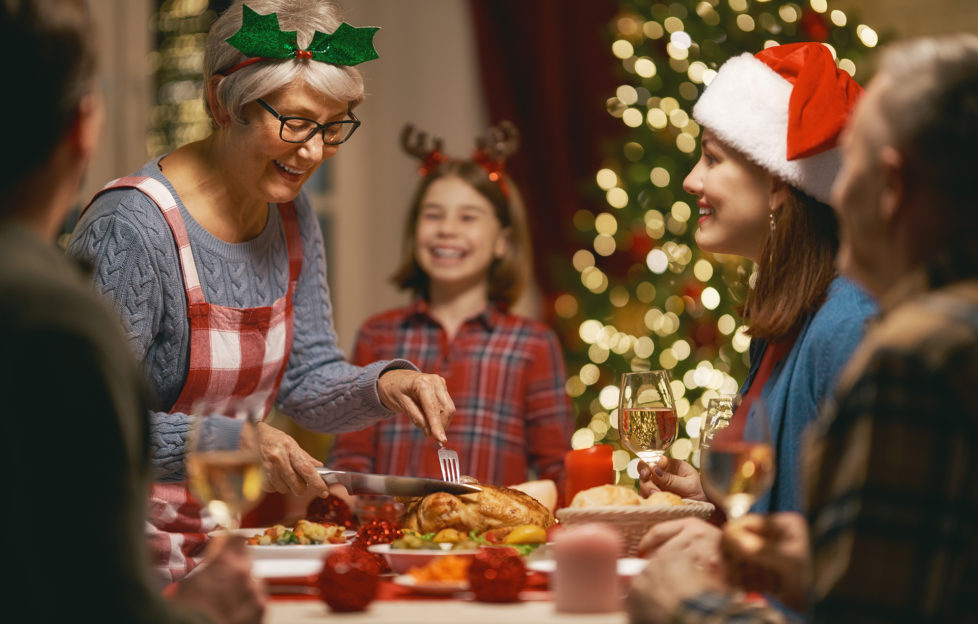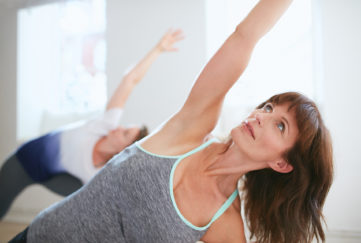Vital Festive First Aid

As the country enters the final countdown to the festive season, St John Ambulance is calling for people across the country to step up and learn vital first aid skills that could save a life, as well as to treat common holiday mishaps and minor injuries at home.
Learning basic first aid can help prevent an unnecessary trip to hospital and ensure that families and communities spend time together, rather than in hospital waiting rooms, but it can also be the difference between life and death in an emergency.
Dr Lynn Thomas, Medical Director at St John Ambulance, said: ‘Knowing how to treat a burn from cooking or a sprained ankle is vital as it means minor injuries can be dealt with at home but acting fast with first aid can also save lives. Having the confidence to take swift action, for example, if a loved one is choking or has a cardiac arrest, can help avoid a tragedy at what is supposed to be the most wonderful time of the year.
‘Always dial 999 in an emergency but equipping yourself with some first aid skills can also help you identify when to seek medical attention. No one wants to end up in hospital, especially at Christmas, and so we’re urging everyone to be prepared, stock up on essentials like plasters and indigestion remedies, and know some first aid.’
Download the St John Ambulance app for easily accessible first aid advice on the go
Choking (adult and child)
With small parts in gifts and plenty of sweets on offer, there is a chance that little ones may put something in their mouth that causes an obstruction of the airway, but adults can, of course, also risk choking at the dinner table. Keep an eye on small children, but if you do find yourself in a situation where someone can’t breathe, know how to step forward and help.
What to do (adult and child):
- Cough it out
- Encourage the casualty to keep coughing
- Slap it out
- Give 5 sharp back blows between the shoulder blades
- Check their mouth each time
- Squeeze it out
- Give 5 abdominal thrusts
- Check their mouth each time
- Call 999/112 for emergency help if the object does not dislodge
- Repeat steps 2 and 3 until help arrives.
What to do (baby):
- Slap it out
- Lay the baby face down along your thigh and support their head
- Give 5 back blows between their shoulder blades
- Turn them over and check their mouth each time
- Squeeze it out
- Using two fingers, give 5 sharp chest thrusts
- Check the mouth each time
3.If the item does not dislodge, call 999/112 for emergency help
- Take the baby with you to call
- Repeat the steps 1 and 2 until help arrives
Cardiac arrest (adult)
A cardiac arrest happens when someone’s heart stops. If someone has become unresponsive and they are not breathing normally they could be in cardiac arrest and you need to act quickly. Call 999 or 112 for emergency help and start CPR, using a defibrillator if available.
How to do CPR:
- Call 999/112 for emergency help
- Do not leave them
- Use a defibrillator if available
- Start CPR
- Give 30 chest compressions and then 2 rescue breaths
- Repeat 30:2 until help arrives
- If you do not feel confident or comfortable delivering rescue breaths, then continue chest compression
- If a defibrillator is available
- Ask a helper to switch on the defibrillator and apply pads while you continue CPR
- Follow the voice prompts given by the defibrillator
- Stand back when shock is advised
- If they become responsive
- Put them in the recovery position
- Leave the defibrillator pads attached
- Monitor level of response.
The recovery position
If someone’s had a little too much to drink and is unresponsive (but still breathing), putting them in the recovery position will help to maintain their airway. Make sure to reassure them, keep them warm and check for any other injuries and do not make them be sick as this may cause a blockage.
What to do:
- Place their nearest arm at a right angle to their body with the elbow bent
- Place the back of their far hand against their cheek
- Hold it there
- Pull the far knee up until their foot is flat
- Pull on the bent leg to roll them towards you
- Tilt their head back to open airway
- If you’re unsure about how serious their condition is then call 999 or 112 for medical help
Cuts and grazes
A slip of the knife while preparing your Christmas feast could leave you with a cut finger or tripping over whilst playing may end with tears and a grazed knee for little ones.
What to do:
- If the wound is dirty, clean the wound with cold running water or alcohol-free wipes
- Pat it dry
- Raise and support the injury
- Apply a sterile adhesive dressing.
Treating a burn or scald
Hot oil jumping out of the pan while checking on roast potatoes or a cup of tea pulled over by a child can easily cause minor burns or scalds.
What to do:
- Hold burn under cool running water for at least 10 minutes
- Remove clothing or jewellery around the burn, unless stuck to the burn
- Cover lengthways with cling film
- Monitor casualty and seek medical advice if concerned, for example by calling NHS 111, who will be able to advice if further action is required
Treating sprains and strains
Presents have been unwrapped and are scattered everywhere – this could easily result in a sprained ankle if you or a family member takes a tumble.
What to do – remember ‘RICE’:
- R– Rest injured part
- I– Apply frozen peas or an ice pack wrapped in a tea towel
- C– Provide Comfortable support
- Check the circulation every 10 minutes
- E– Elevate the injured part
- Advise them to rest
In the case of an emergency always call 999 for help. For those looking for quick, easily accessible first aid information, the St John Ambulance app is available free on smartphones or visit the website. (www.sja.org.uk) It offers demo videos, an interactive game, and lots of free advice.
About St John Ambulance
St John Ambulance is the charity that steps forward in the moments that matter to save lives and support communities. Its highly trained volunteers keep people safe at events nationwide, springing into action to help with medical incidents and emergencies.
The organisation also helps the NHS by responding to some 999 calls, as well as transporting patients safely. And every year around 500,000 people, including children and young people, learn how to save a life through its first aid training.
St John Ambulance has saved lives and relieved suffering for over 140 years, and – with the support of the public – will do so for decades to come.




